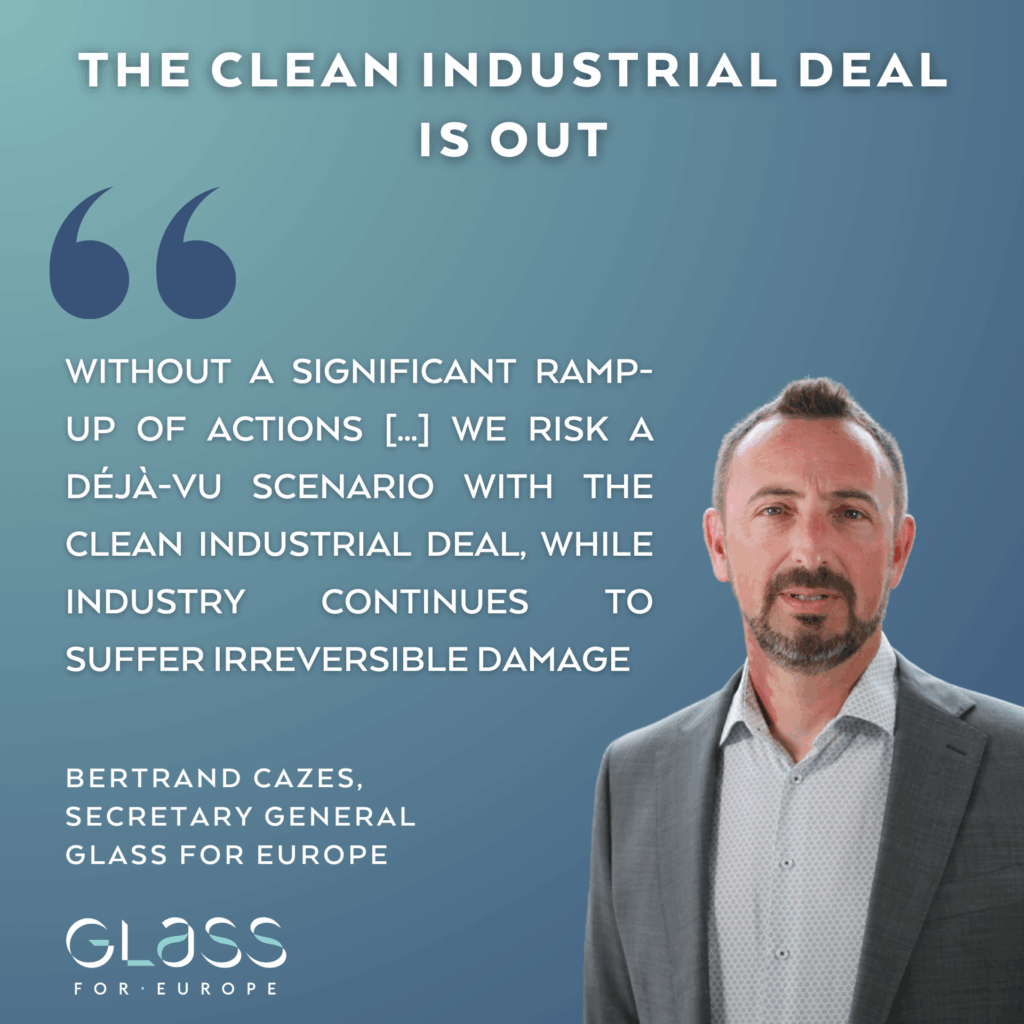On 26 February, the European Commission has presented its Clean Industrial Deal alongside an Action Plan for Affordable Energy and a simplification omnibus package. These initiatives were discussed at the European Industry Summit 2025 in which the Chair of Glass for Europe participated. Speaking at a high-level round table, Davide Cappellino expressed the need to do more to respond to the “perfect storm” facing the flat glass industry.
The highly anticipated Clean Industrial Deal was introduced within the first 100 days of the Commission’s mandate, as promised. It focuses on two main objectives accelerating the decarbonisation of energy-intensive industries and enhancing their competitiveness by supporting the clean-tech sector, essential to industrial transformation. To address every stage of production, the European Commission wants to activate six business drivers: (1) affordable energy, (2) lead markets, (3) financing, (4) circularity & access to materials, (5) global markets and international partnerships (6) and skills. The accompanying Action Plan for Affordable Energy acknowledges the significant burden of high energy prices on industries and seeks to address this challenge.
On the same day, 400 business leaders, industry representatives and workers met in Antwerp to discuss these initiatives with Commission President Ursula von der Leyen and the Commissioners directly involved with the Deal. The European Industry Summit 2025 was a follow-up of last year’s event where the Antwerp Declaration was signed by 73 business leaders representing 17 sectors. At a high-level roundtable with Commissioner Wopke Hoekstra, the Chair of Glass for Europe, Davide Cappellino delivered a stark reality check: decarbonisation technologies will cost more than current manufacturing processes. In its current form, the Clean Industrial Deal does not address this issue and fail to introduce concrete actions proportional to the urgency and scale of the crisis faced by the flat glass sector.
In reaction to the Clean Industrial Deal, Bertrand Cazes, Secretary General of Glass for Europe, emphasized the gravity of the situation, stating, “Without a significant ramp-up of actions to reduce energy costs in the short-term and reforms to provide effective and lasting protection against the risk of carbon leakage – be it through ETS mechanisms or the CBAM – we risk the déjà-vu scenario of a communication not triggering the desired impact, while industry continues to suffer irreversible damage.” While the Commission’s plan to mobilize €100 billion to support EU-made clean manufacturing is acknowledged as a positive step, Glass for Europe urges the inclusion of more targeted measures that provide swift relief to energy-intensive industries, ensuring their resilience and competitiveness in the global market.
Glass for Europe press release stresses that immediate and concrete actions are essential to safeguard the industry’s future. “Now is the time for policymakers to step up. Glass for Europe stands ready to provide actionable recommendations. The European Union needs a competitive industry if industry is to succeed in its decarbonisation journey” concluded Bertrand Cazes.


